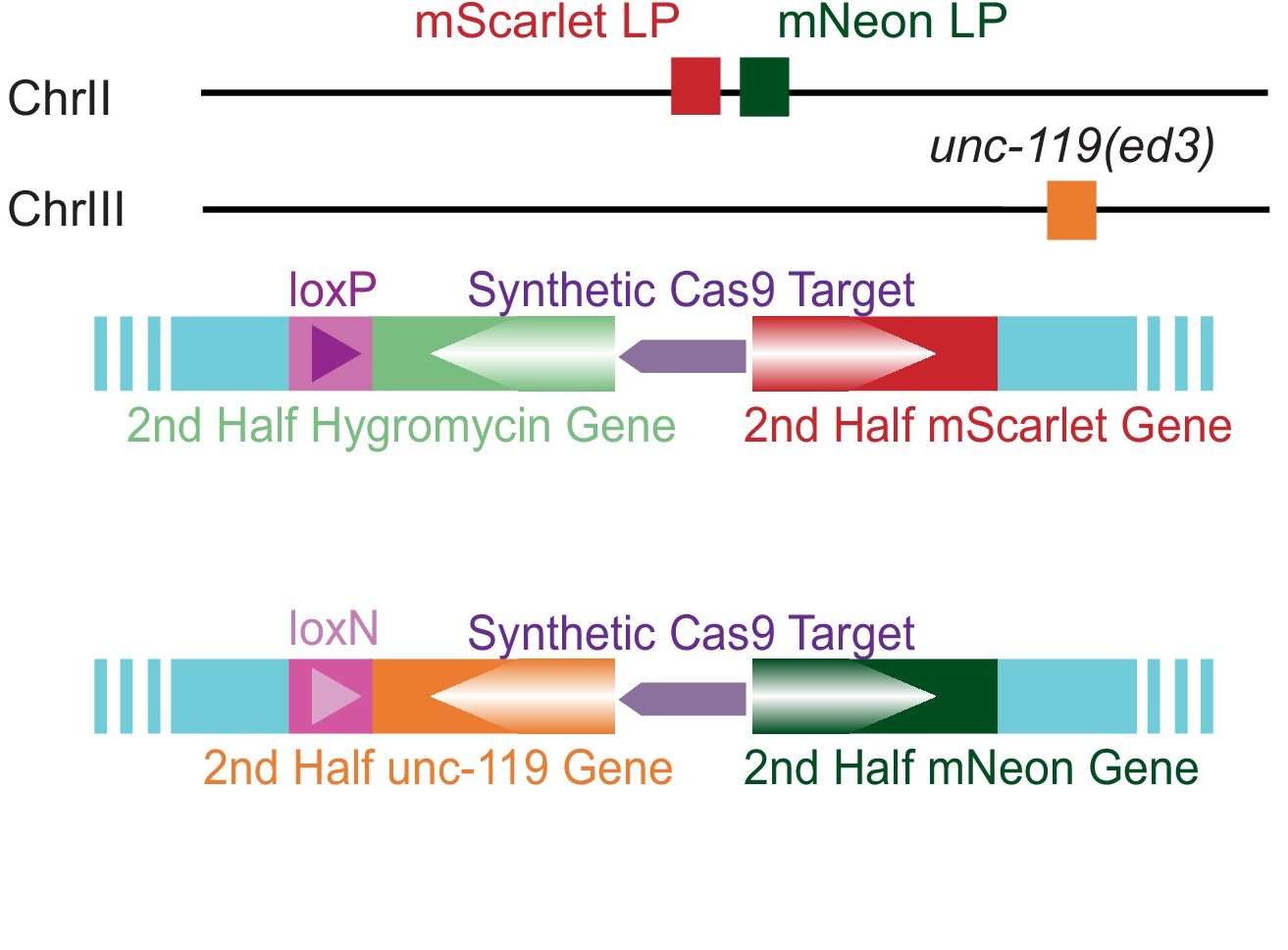
The Phillips lab has developed multiple CRISPR-based techniques for genomic engineering that allow microbial approaches to be used in an animal system for the first time.
- pphil@uoregon.edu
- 5289 University of Oregon
- Eugene, OR 97403-1210
- © 2024

The Phillips lab has developed multiple CRISPR-based techniques for genomic engineering that allow microbial approaches to be used in an animal system for the first time.


The Phillips lab, together with researchers in the Department of Bioengineering in the Knight Campus for Accelerating Scientific Impact at the University of Oregon, is leading a new, broadly collaborative effort to apply approaches from synthetic biology and cellular engineering to address fundamental and applied questions in the biology of aging. To this end, we are searching for multiple research assistant/technician and postdoctoral fellow positions. We anticipate hiring people with a wide range of backgrounds and interests to create a team with diverse skills capable of making unique contributions to this developing area.
A fundamental challenge for the field of healthy aging is that the entire US healthcare industry is geared towards treating disease-related outcomes late in life (cancer, heart disease, dementia), but not addressing the early underlying causes of age-related decline itself. What is needed now are entirely new approaches that are (1) focused on interventions on root causes and (2) lend themselves to rapid prototyping and translation. This new initiative in Synthetic Biology and Aging, rather than focusing on traditional reductionist approaches to studying longevity extension and healthy aging, will be built around scalable engineering approaches based in synthetic biology. Traditional biological approaches rely on studying “normal” function in living systems. But aging is normal, so disruption and transformation in the field of age-related decline require new synthetic approaches that generate novel biological functions and allow for rapid screening of genetic and chemical interventions that enhance existing biological function for tissue regeneration, neuronal health, DNA repair, sustained muscle performance, and more. We seek a cohort of research scientists who can help us build this new vision of the future.
Postdoctoral positions will focus either on using genome editing to create artificial circuits to probe and manipulate stress and aging pathways or on developing novel microphysiological systems (organoids) to understand and manipulate the aging process within human tissues, eventually leading to screens for interventions that extend the period of healthy aging. Initial genetic circuit work will be conducted using the nematode C. elegans as a model system and the microphysiological work will initially focus on age-related breakdown and inflammation in tissue interactions among bone, muscle and cartilage in joints. Depending on interest, a background in bioengineering, molecular biology, cell biology, and/or computational biology will be helpful.
Eugene is a vibrant city within 90 minutes of the beautiful Oregon coast and skiing in the Cascade Mountains. Eugene was recently names one of the top 20 cities in the US to live by Money Magzine, with further highlights by the Register Guard.The research assistant positions will be responsible for helping to develop these new approaches, specially using C. elegans as an initial model, via single-cell approaches, flow cytometry, genetic engineering, and/or genomics. We anticipate filling one position at a senior level (Ph.D/M.S.) and one at a junior level (B.S./M.S.). Background in cell biology, molecular biology, genome editing, and/or nematode culture will be helpful.
Individuals interested in a position as a research assistant should click here to apply.
Individuals interested in a postdoctoral position should click here to apply. (Postdoc applications come in as part of a general UO postdoc pool process.)